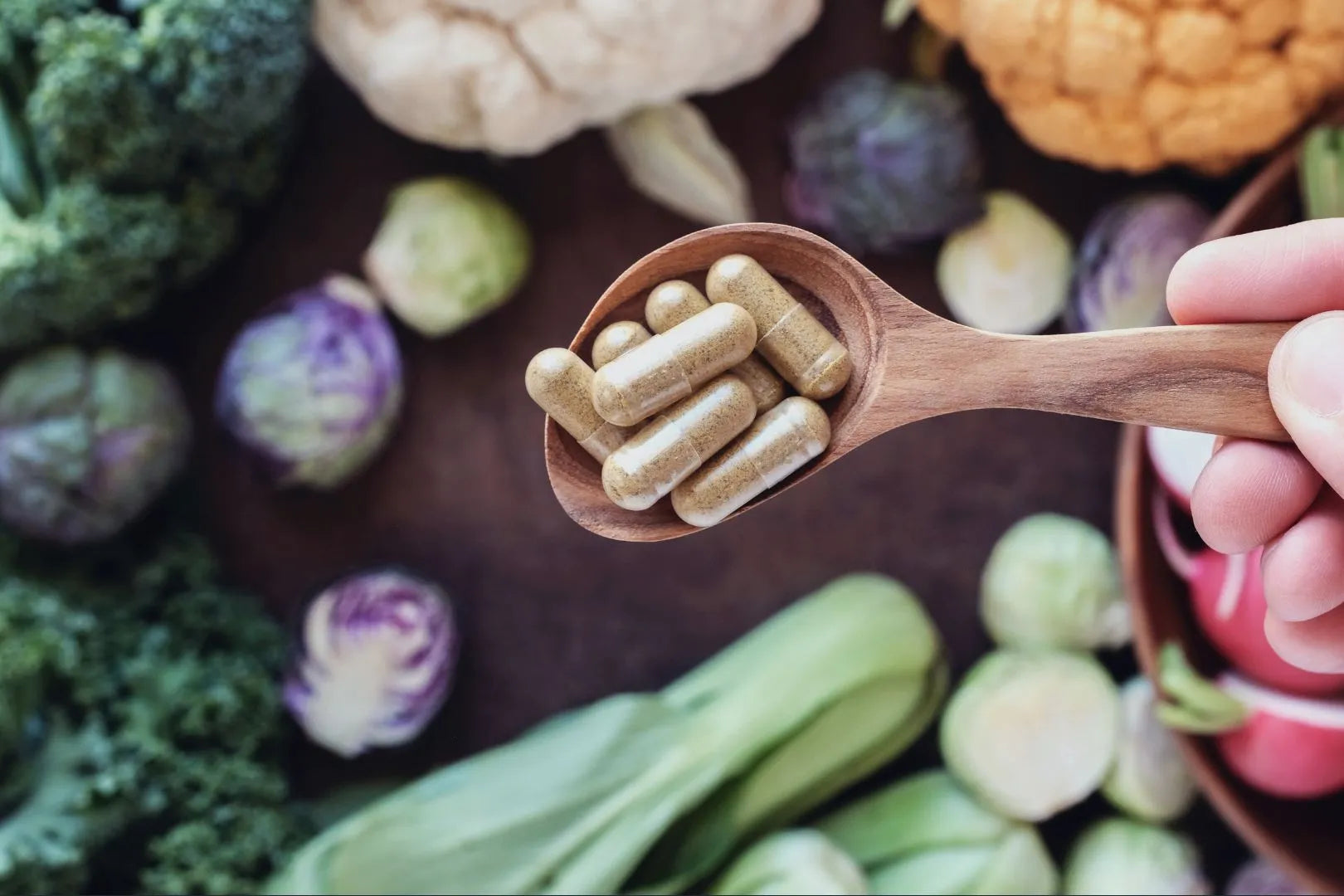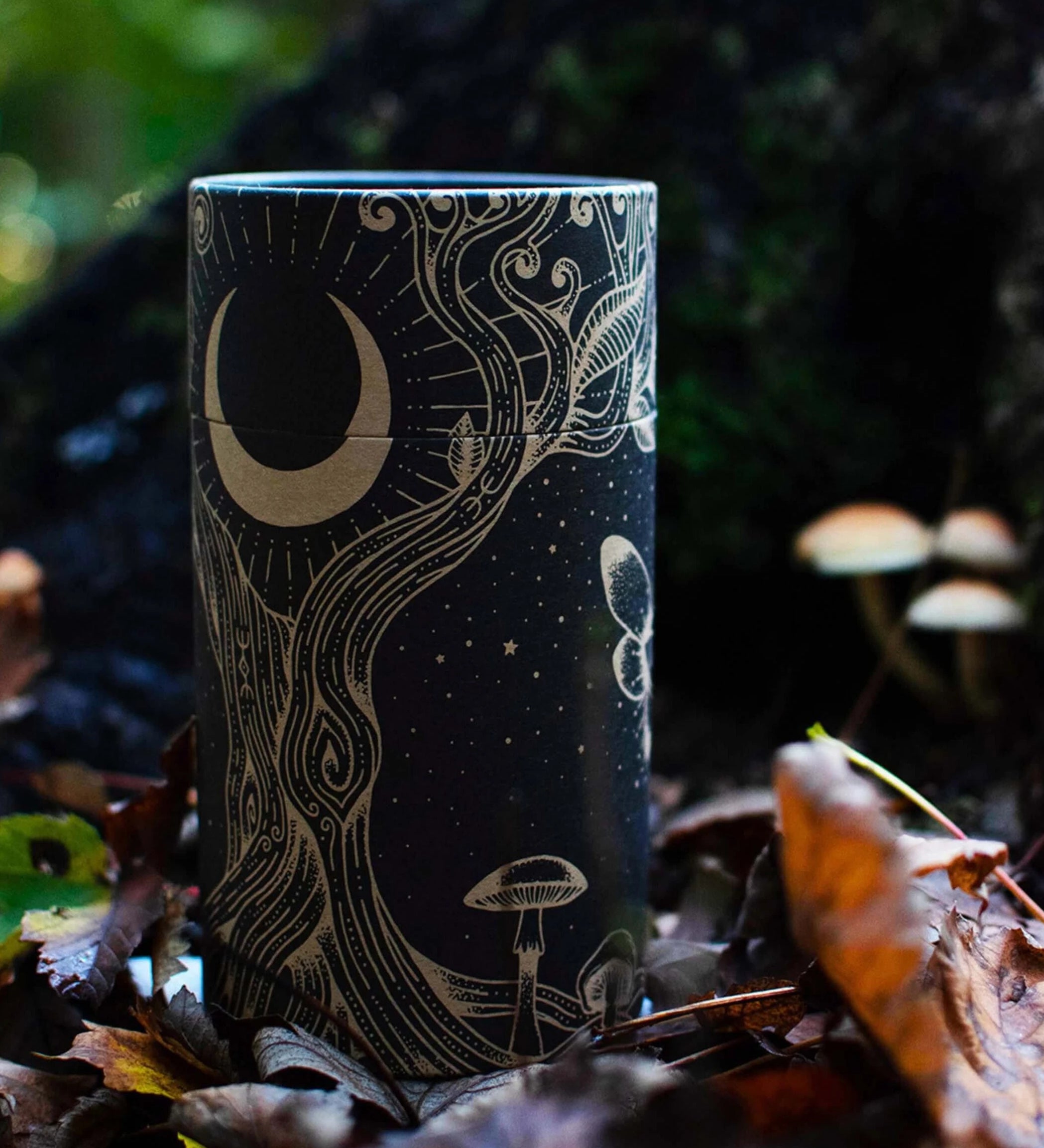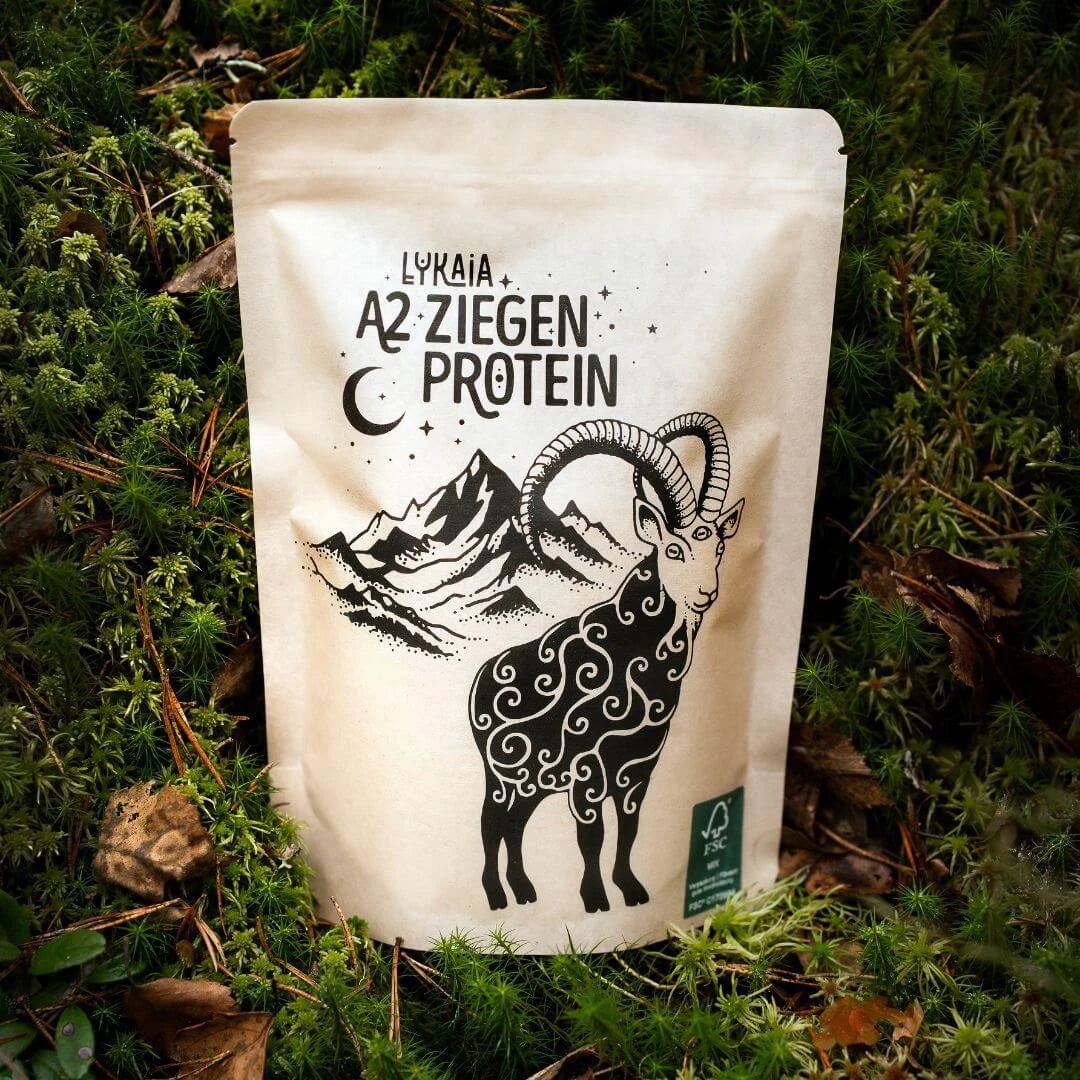Vegan Diet: Six Common Critical Nutrients

written by Jana Baltscheit
Vegan nutrition is more than a trend - for many people it is a lifestyle. However, as with any one-sided diet, there are important aspects to take into account. In this article I will highlight six critical nutrients for vegans for you. The essential nutrients vitamin B12, iron, zinc, calcium and omega-3 fatty acids . I'll show you what can be problematic with a purely plant-based diet.
First of all: Is this post pointless condemnation of vegan nutrition? No. It's science and the knowledge gained from years of nutritional coaching - i.e. observing other, real people with real everyday life and real emotions.
In addition, I had the vegan experience over a long period of time by experimenting on my own body.
Because of society and the media, I followed the vegan trend. For many months I lived exclusively vegan ( here you can read my personal experience and why I have such a hard time with one-sided diets).
The problem: My health deteriorated over time. Back then I wanted to do good. Help the environment. Improve my health.
The result : I tripped myself up. The attempt backfired.
Vegan nutrition is more complex than you think at first glance.
- Reasons for a nutritional deficiency in a vegan diet
- Iron in a vegan diet
- Vitamin B12 in vegan diets
- Calcium in vegan diets
- Zinc in vegan diets
- Omega 3 in vegan diets
- Conclusion on the vegan lifestyle: is a one-sided diet really healthy?
Reasons for a nutritional deficiency in a vegan diet
It is that some vital nutrients in plants...
- are not contained at all / or are present in a form that our body cannot (at all) do anything with !
- are absorbed significantly more poorly by the body than animal alternatives because they do not resemble our organic requirements or are difficult to access.
- Depending on your lifestyle, they must be consumed in significantly higher quantities in order to do justice to the animal's effectiveness - and therefore quickly lead to a higher amount of calories consumed.
Since many people who rush into an exclusively plant-based diet are not aware of these circumstances, in this article I will introduce you to a selection of these nutrients and the reasons for them.
Read more and learn about critical nutrients in a vegan diet.

Iron in a vegan diet
The trace element iron, non-heme iron and heme iron
Iron is a mineral. More specifically, a so-called trace element. Trace elements are minerals of which the body needs less than 50 mg per body weight. Iron is the exception at 60 mg per body weight and is still considered a trace element. Only (and exclusively means 100%) non-heme iron is present in plant foods. Our body can utilize this significantly more poorly than heme iron.
You guessed it: you can find plenty of heme iron in fish or meat. There it is represented with a share of around 40%. What is therefore still in the green for the vegetarian, who sees himself more as a pescatarian (i.e. plant + fish), is no longer in the green for the purely plant-oriented in terms of iron supply (irony knocks).
Critical iron requirements in vegan athletes
Even if “poorer utilization” does not mean “no benefit at all for the organism,” it could still quickly become critical for you. Athletes in particular who do not monitor their iron intake to the millimeter are often at risk of sports anemia.

This is always counteracted by the fact that a reduced iron absorption is accompanied by an increased absorption rate of the iron supplied. This means that your body absorbs iron better if you tend to consume less iron. This is not a recommendation for a one-sided lifestyle. It shows what distinctive compensation mechanisms our body is equipped with!
It should still be clear to you that he is fighting against a deficiency there. Compensating does not mean optimizing!
By now you are aware of the seriousness of it. Especially people who run longer distances several times a week (e.g. 2-3 times for 3-5 km) have an increased iron requirement anyway. Read on and find out why...
Reasons for iron deficiency in vegans
On the one hand, iron is increasingly required through excretion through sweat and through the destruction of red blood cells through muscle contractions. What is hardly noticeable with an omnivorous (eater) lifestyle, as 2-3 portions of meat and fish per week are enough for a healthy iron requirement, is quickly found to be under-supplied with a purely plant-based diet. Vegan athletes need to be completely aware of their diet.

Women in particular suffer from this problem more often than men - due to menstruation. This can cause a mild to severe iron deficiency, even with a mixed animal diet. Targeted eating often helps. For example, eat sourdough bread. If in doubt, the iron supplement helps.
Iron-rich foods in a vegan diet:
Sesame, walnuts, pumpkin seeds, pistachios, linseeds, hazelnuts, tofu, spinach, wheat germ, millet, kale, rocket, chickpeas, almonds, apricots, lentils, whole grain rye bread.
Vitamin B12 in vegan diets
Vitamin B12 is a vitamin - therefore essential. It is one of the water-soluble vitamins and fulfills a variety of important functions in your body. These include functions in the nervous system, cell division and blood formation.

Reasons for vitamin B12 deficiency in vegan diets
The situation is clearer with vitamin B12 than with iron. A sufficient supply of vitamin B12 is impossible with a purely plant-based diet . This is a scientific fact that can be confirmed in abundance with a quick Google search. What does that mean in practice if you still want to live a vegan life and don't want to risk a vitamin B12 deficiency?
You have no choice but to supplement vitamin B12. This means providing you with targeted nutritional supplements. Can we still talk about a wholesome diet when we talk about a “vegan lifestyle”? If you eat a mixed diet, you definitely don't need to supplement this vitamin, as it can be found in sufficient quantities in meat products.
Why is this not clear to many people?
Vitamin B12 is the only water-soluble vitamin that is stored in our body in the liver and muscles. If well filled, the storage can last for several years! If you switch from an omnivorous to a vegan diet, these deficiency symptoms often only become apparent after 2,3 or even up to 6 years . Most people are not even aware of the connection to a vegan diet until a doctor or nutritionist reveals this deficiency!
“It went so well for so many years.”

Calcium in vegan diets
Calcium for healthy bones, muscles and teeth
Calcium, like iron, is a mineral. This is an essential macronutrient. However, this is one of the set elements. Quantitative elements are present in our body at >50 mg per body weight. Calcium takes on important functions in our body that cannot be managed without regular intake and results in serious health consequences. The best-known functions are influences on our bone health and teeth. It supports our muscles in coping with loads - general movement - and blood clotting.

Especially at a young age, sufficient calcium intake lays the foundation for strong and resilient bones well into old age. (You can find out more about the topic in our article about sarcopenia) . Depending on age, the body needs 600-1200 mg daily, with under 4 year olds having the minimum value of 600 mg and pregnant women, breastfeeding women, as well as children and young people aged 10-20 having the maximum value of 1200 mg. For adults, 1g of calcium per day is generally recommended.
Reasons for calcium deficiency in vegan diets
The problem is not so much the amount of calcium available from plants, but rather its poor bioavailability. This is caused by various substances contained in plants. These include oxalic acid, galacturonic acid and phytic acid. These can be found in whole grain products, legumes, nuts - but also, for example, in spinach. These form complexes with the calcium. Our body finds it difficult or impossible to solve these, which means we can effectively obtain less calcium from plant-based foods.

The idea of simply consuming more calcium, which works with protein, is not effective with calcium. The more calcium we consume, the lower the rate of absorption in the body.
How can you ensure sufficient calcium supply in a vegan diet?
There are foods that promote absorption. Here too, the acids are the key. Watch out for foods containing citric acid, tartaric acid, or malic acid. For example, peppers, citrus fruits, grapes, apples and cherries. At the same time, vitamin C and vitamin D can be beneficial in conjunction with calcium. Vitamin C also increases solubility in the body. Vitamin D ensures the storage of calcium in the bones.
Calcium-rich mineral water is a good way out if you eat a plant-based diet. You should always prefer this as a vegan. Drink this separately from your meals to avoid the inhibiting acids. It is advisable to eat calcium-rich and iron-rich meals separately, otherwise beneficial and inhibitory substances can get in the way.

Zinc in vegan diets
Zinc: All-purpose mineral and organism manager
Zinc has versatile functions in the body. As a trace element, it takes on so many tasks that it is often called the “manager” of minerals. It supports: healthy skin, hunger regulation, immune competence, eyesight, hormone regulation, sense of taste, wound healing, nail and hair health and much more.
A deficiency often has a noticeable impact on the areas just mentioned. This leads to infections, reproductive problems and, for example, a failure to build muscle.

Reasons for zinc deficiency in vegan diets
Zinc has the same problems as calcium in a vegan diet. It forms compounds with various ingredients in plant-based foods. This is difficult for the body to utilize. If a zinc deficiency is detected, phytic acid should be avoided or consumed separately from foods rich in zinc.
Vegans should drink a maximum of 2-4 cups of coffee daily. The same goes for black and green tea. Otherwise, the tannin content can severely inhibit zinc absorption. When it comes to bread, care should be taken to use sourdough miter so that the zinc is in a form that is easier for the body to absorb.
Taking large amounts of zinc with the idea of filling your zinc stores makes no sense. The more zinc you put into the body, the higher the excretion. Zinc should therefore be consumed throughout the day.

Zinc-rich foods in a vegan diet
Flax seeds, chia seeds, wheat germ, hazelnuts, walnuts, almonds, lentils, tofu, cashews, oatmeal, sesame, chickpeas and almonds.
Omega 3 in vegan diets
Omega-3 is probably the most well-known fatty acid
Omega-3 fatty acids are essential and must be consumed through your diet. It improves blood lipid levels, brightens mood and supports neuronal activity. At the same time it has an anti-inflammatory effect.

Omega 3 and Omega 6 should always be present in balance in the body. This is not the case in Central European food. The DGE recommends achieving a ratio of O3 to O6 of a maximum of 1:5. In reality, the German population in particular often has a ratio of 1:10 or even 1:20 (on average 1:15).
A ratio of 1:1 is optimal. Since hardly anyone achieves this, it's bad across the board. While O3 has an anti-inflammatory effect, O6 promotes inflammation. The balancing act doesn't work even with a balanced mixed diet.
In nature, O3 fatty acids are predominantly found in animal products. These are mainly found in fish. For the body in almost optimal form.
But people always rave about nuts, seeds and oils when people talk about Omega 3? Read on…
Reasons for Omega 3 deficiency in vegan diets
The balancing act between O6 and O3 is even more difficult for vegans.
It may be true that various plant foods are rich in Omega 3. Unfortunately, omega-3 fatty acids in plant-based foods are exclusively ALA-based. ALA stands for Alpha-Linoletic Acid (German alpha-linolenic acid). While the animal Omega 3 EPA (eicosapentaenoic acid) and DHA (docosahexaenoic acid) can be utilized very well by the body, ALA is only 10% efficient.

This means you have to consume 10x as much omega-3 from plants to get the animal equivalent. The daily value to be achieved should be at least 0.3g O3. For pregnant and breastfeeding women it is 0.5g. This does not mean ALA, but EPA or DHA.
How can I compensate for the Omega 3 deficiency in a vegan diet?
Even if you now think about consuming 10x more nuts, seeds and oils, you will not be able to effectively cover your omega-3 needs as a vegan. You rely on supplements. Algae-based preparations are recommended here.
Always remember: Minimum value does not mean optimal value!
Proteins in vegan diets
Why are proteins critical in the vegan diet? The main reason is the inferior amino acid profile. Compared to animal proteins, vegetable protein performs worse in terms of what is known as biological value. If you are not aware of this, as a vegan you may have a deficiency despite sufficient protein intake. This is because you need more protein from plant sources to compensate for the higher quality animal protein. An extra surcharge of 15-20% per day is mandatory. And that means: more total calories!
We have already described this topic in detail in other articles.
You can read more here .
Conclusion on the vegan lifestyle: Is an unbalanced diet really healthy?
The bottom line is that I don't recommend a one-sided diet to anyone. Even though some studies repeatedly try to emphasize the advantages of a purely plant-based diet, this should be viewed as extremely critical in practice. The opposing side of studies is at least as large. Under no circumstances do I recommend a one-sided diet. This applies to excessive meat consumption or exclusively plant-based food. The facts and feasibility in the “real world” speak against a purely vegan diet for many people.
The mere fact that you have to supplement various nutrients makes it difficult to defend this form of nutrition as “wholesome”.
Ultimately you have two options:
Either you eat balanced, i.e. omnivorous - as it should be - as a mixed diet.
Or you follow your vegan diet plan. If you want that, pay close attention to the critical nutrients. What initially appears as increased well-being turns out to be malnutrition over a period of months or a few years. Your body will pay you back - unfortunately. At the same time, you have to coordinate your meals much more closely. What initially sounds like a variety of foods becomes restrictive pretty quickly.

If you want to eat vegan, get a clear picture of all the nutrients you need. Deal with different products down to the smallest detail. Pay particular attention to the critical suspects mentioned here and a controlled vegan diet can work (with supplements).
You only have one body. Take your diet seriously before it's too late. The suffering you may perceive as normal is not.
Imagine how good you could feel if you really took control of your diet?
The important thing is : as a vegan you are absolutely dependent on nutritional supplements. You have to supplement at least vitamin B12 and Omega 3 . There is no second opinion.
What are your experiences with a vegan diet? Feel free to share your impressions – your personal ones or those from your circle of friends. Do you know people who have lasted longer than 5-6 years? Do you perhaps have questions about the vegan lifestyle? Feel free to contact us!
I look forward to hearing from you!
Your Lykaia team
0 comments








